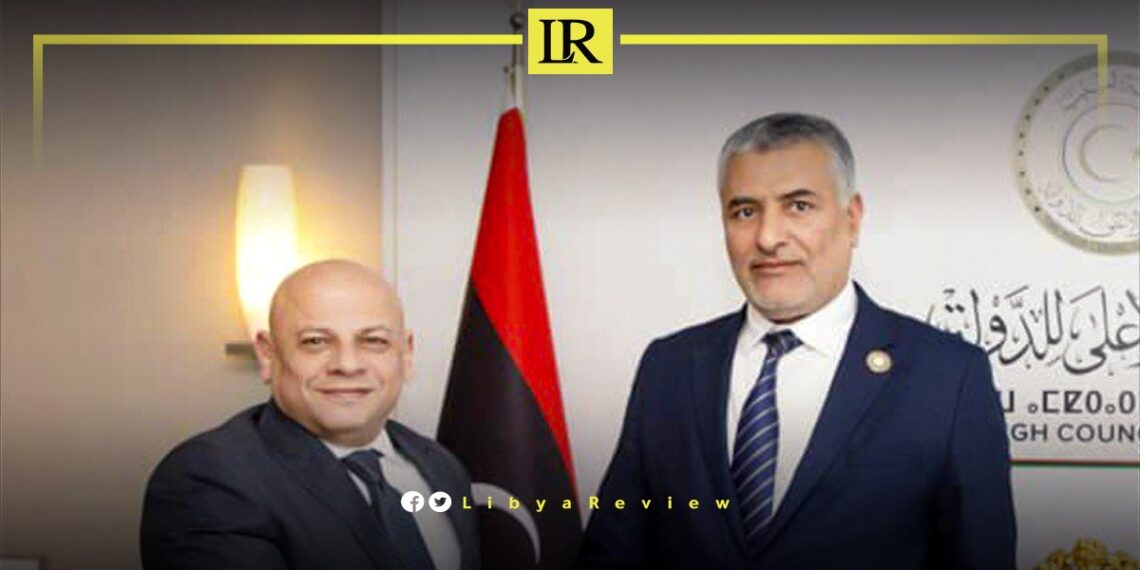Mohamed Tekala, the Head of Libya’s High Council of State (HCS), welcomed the Egyptian Ambassador to Libya, Tamer Mostafa, at the HCS headquarters in Tripoli on Thursday.
The meeting focused on Libya’s political situation and the initiative proposed by the United Nations (UN) Envoy, Abdoulaye Bathily. It was aimed at resolving the political crisis, establishing a roadmap for elections, and concluding the transitional phases. Tekala affirmed the HCS’ support for the UN mission’s efforts to reach elections. Tekala emphasised the importance of fair and transparent laws that gain the Libyan people’s acceptance.
The discussion also covered the bilateral relations between the two countries, exploring ways to enhance cooperation across various sectors for the mutual benefit of both nations.
Last month, he Head of the United Nations Support Mission in Libya (UNSMIL) urged Libyan factions to “demonstrate responsibility and come together for negotiations.”
In a meeting with the Prime Minister of the Government of National Unity (GNU), Abdelhamid Dbaiba, Bathily expressed his ongoing efforts to bring key Libyan parties to the table, and to find a peaceful resolution to the ongoing crisis.
He reiterated his call for all parties to engage in negotiations, emphasising that “now is the time to show responsibility!” He stressed the necessity for Libyan leaders to “act decisively to achieve peace and stability in their homeland.”
Bathily added that “citizens across Libya are eager to see their country under unified and legitimate institutions, emerging from a long-awaited electoral process.” He highlighted the importance of a sense of duty towards the nation, to prevent the country from falling apart.
This development comes amid a complex political landscape in Libya, where efforts to unify the country and pave the way for elections have faced numerous challenges. The international community, led by the UN, continues to support dialogue and reconciliation for Libya.
As the country stands at a critical juncture, the call for responsible leadership, and a commitment to peace remains paramount. The Libyan people’s aspirations for a stable and unified nation hinge on the willingness of its leaders to prioritize national interests, and work towards a common future.


